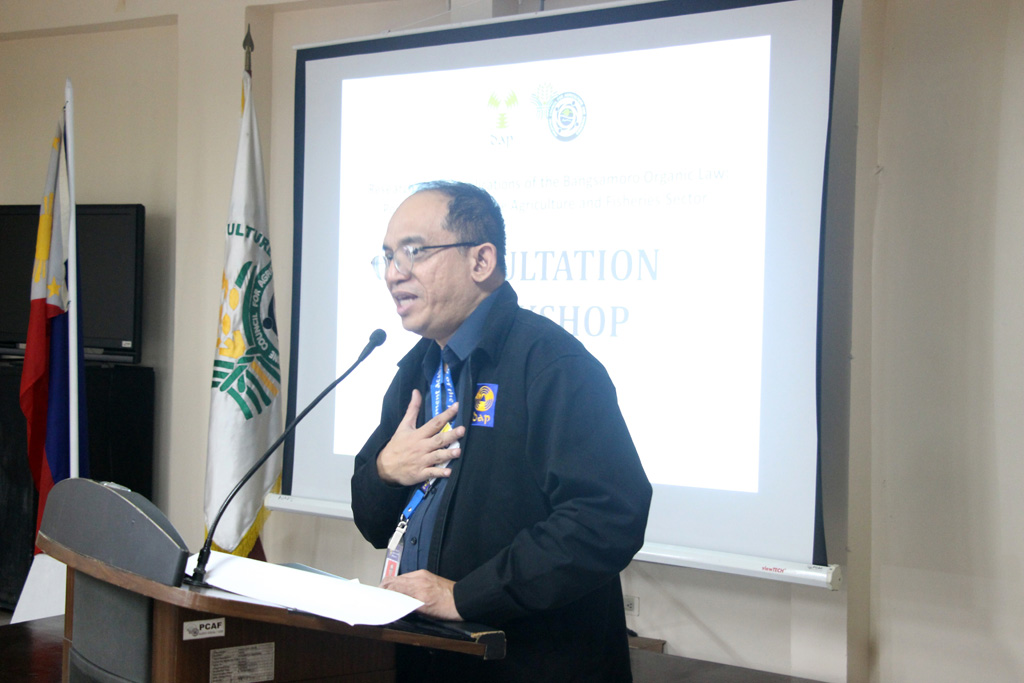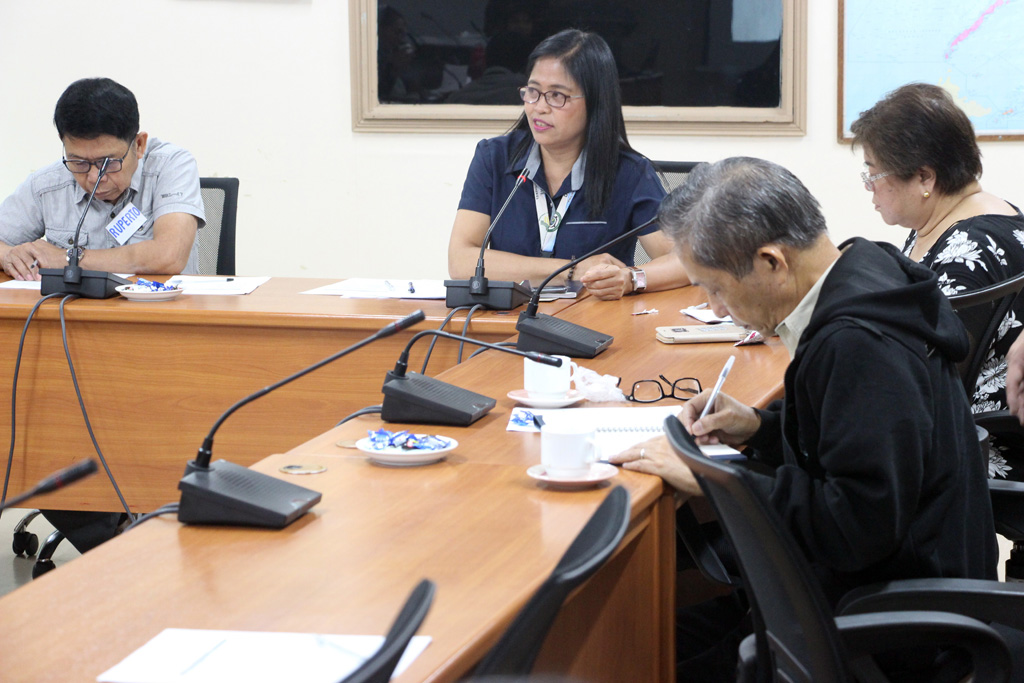
With the first round of plebiscite for the Bangsamoro Organic Law (BOL) kicking-off earlier in the week, the members of the Philippine Council for Agriculture and Fisheries’ (PCAF) National Sectoral and Strategic Concerns Committees (NSSCCs) alongside representatives from the different DA offices and the Development Academy of the Philippines (DAP) have gathered on January 22, 2019 to discuss the policy implications of the BOL on the country’s agri-fishery sector at the Apacible Conference Room A.
This consultation workshop is in support to the current engagement between PCAF and DAP in relation to the latter’s policy study on the BOL’s perceived impact on the agriculture and fishery sectors.
Opening the activity, PCAF Executive Director Sarah Gutierrez-Cayona noted the importance of this consultative workshop, recalling the time wherein a similar proposed initiative was raised in the form of the Memorandum of Agreement on Ancestral Domain but was declared unconstitutional by the Supreme Court.
The PCAF Executive Director also added that thru this workshop, it will enable stakeholders to thoroughly identify and assess the risks and opportunities for the agri-fishery sector given the implementation of the BOL and the subsequent creation of the Bangsamoro Autonomous Region (BAR).

“Ang PCAF ay may policy study, ‘yung Implications of the Bangsamoro Organic Law: Policy Prospects for the Agriculture and Fisheries Sector. Mapaguusapan natin lahat ng related sa agriculture at fisheries, ‘yung mga issues, implications, risks and opportunities at kung ano ang maiiayos pa for the sector,” noted Executive Director Gutierrez-Cayona.
For his part, DAP Center for Governance-Policy Research Office Director and resource person Gilbert Lumantao shared the mechanics of the workshop while acknowledging the timing of the activity, as it has coincided with the first round of plebiscite for the BOL.
Among the topics presented and discussed included identification and prioritization of issues and challenges of the agriculture and fisheries sector in which participants raised concerns ranging from support to farmers in the area, management of DA projects, fiscal accountability, lack of farm machineries and facilities to application of national policies at the Bangsamoro level, among others.
In response, Director Lumantao said that these inputs will serve as one of the research team’s objectives once they do fieldwork around ARMM areas following this preliminary workshop.
“We at DAP will be aiming at a policy paper not only meant for the use of PCAF but also to the managers and leadership of the BOL especially those involved in the agriculture and fishery sector,” remarked the DAP official.
Also presented during the session are the basic details of the BOL in which salient features, such as resource and revenue sharing between the BAR and National Government and a special development fund channeled to the region covering 10 years at PhP5 Billion annually, were discussed among the participants.
Director Lumantao also provided a brief discussion of the Bangsamoro government, territorial jurisdiction, as well as the other aspects of BOL governance.
In closing, Director Lumantao noted that there will be another workshop following this one upon completion of the DAP research team’s fieldwork in BOL areas in March 2019. It is expected that a policy paper will be presented during the said workshop based on consultations made during the field activity.
Signed on July 26, 2018, Republic Act No. 11054 or the Bangsamoro Organic Law (BOL) sets the establishment of the Bangsamoro Autonomous Region (BAR) replacing the existing Autonomous Region in Muslim Mindanao (ARMM). The first round of the plebiscite to ratify the said law was held on January 21st, with another round set to take place on February 6, 2019. – AE











